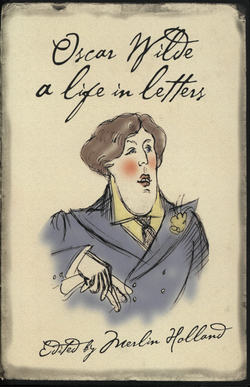Читать книгу Oscar Wilde: A Life in Letters - Оскар Уайльд, Merlin Holland, F. H. Cornish - Страница 68
To Mrs Bernard Beere
Оглавление[17 April 1882] Kansas City, Missouri
My dear Bernie, I have lectured to the Mormons. The Opera House at Salt Lake is an enormous affair about the size of Covent Garden, and holds with ease fourteen families. They sit like this and are very, very ugly. The President, a nice old man, sat with five wives in the stage box. I visited him in the afternoon and saw a charming daughter of his.
I have also lectured at Leadville, the great mining city in the Rocky Mountains. We took a whole day to get up to it on a narrow-gauge railway 14,000 feet in height. My audience was entirely miners; their make-up excellent, red shirts and blond beards, the whole of the first three rows being filled with McKee Rankins of every colour and dimension. I spoke to them of the early Florentines, and they slept as though no crime had ever stained the ravines of their mountain home. I described to them the pictures of Botticelli, and the name, which seemed to them like a new drink, roused them from their dreams, but when I told them in my boyish eloquence of the ‘secret of Botticelli’ the strong men wept like children. Their sympathy touched me and I approached modern art and had almost won them over to a real reverence for what is beautiful when unluckily I described one of Jimmy Whistler’s ‘nocturnes in blue and gold’. Then they leaped to their feet and in their grand simple way swore that such things should not be. Some of the younger ones pulled their revolvers out and left hurriedly to see if Jimmy was ‘prowling about the saloons’ or ‘wrastling a hash’ at any eating shop. Had he been there I fear he would have been killed, their feeling was so bitter. Their enthusiasm satisfied me and I ended my lecture there. Then I found the Governor of the State waiting in a bullock wagon to bring me down the great silver-mine of the world, the Matchless. So off we drove, the miners carrying torches before us till we came to the shaft and were shot down in buckets (I of course true to my principle being graceful even in a bucket) and down in the great gallery of the mine, the walls and ceilings glittering with metal ore, was spread a banquet for us.
The amazement of the miners when they saw that art and appetite could go hand in hand knew no bounds; when I lit a long cigar they cheered till the silver fell in dust from the roof on our plates; and when I quaffed a cocktail without flinching, they unanimously pronounced me in their grand simple way ‘a bully boy with no glass eye’—artless and spontaneous praise which touched me more than the pompous panegyrics of literary critics ever did or could. Then I had to open a new vein, or lode, which with a silver drill I brilliantly performed, amidst unanimous applause. The silver drill was presented to me and the lode named ‘The Oscar’. I had hoped that in their simple grand way they would have offered me shares in ‘The Oscar’, but in their artless untutored fashion they did not. Only the silver drill remains as a memory of my night at Leadville.
I have had a delightful time all through California and Colorado and am now returning home, twice as affected as ever, my dear Bernie. Please remember me to dear Dot, to Reggie and all our mutual friends including Monty Morris, who won’t write to me or even criticise me. Goodbye. Your sincere friend
OSCAR WILDE
Your letter was charming. Write to New York, 1267 Broadway.
Helena, aged eighteen, was the young sister of the painter Walter Sickert. Wilde had known the family for some time and had presented her with her first volume of poetry, Matthew Arnold’s poems, three years before. There is an uncanny presaging of Wilde’s own fate in his visit to the prison; on the other side of the bars fourteen years later he too would read Dante to console himself.
